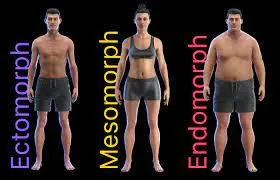
Stop Letting The Scale Do Your Head In.
When you’re thinking of losing weight or simply want to see how healthy you are, you probably do one of two things: step on a scale or calculate your BMI. But the truth is, these methods don’t tell you anything about how healthy you are– all weight and BMI does is compare how heavy you are to a standard that doesn’t fit your individual goals.
When you’re trying to get healthier, you’re most likely going to
lose fat and (hopefully) gain muscle. But BMI and weight don’t differentiate between muscle and fat. So how can you? Through body composition analysis. Body composition analysis is a method of describing what the body is made of, differentiating between fat, protein, minerals, and body water to give you a snapshot of your health. InBody is the leader in body composition analysis, and we’re here to teach you the importance of it to help you reach your health goals from the inside out.

What is body composition?
Body composition is used to describe the percentages of fat, bone, water, and muscle in human bodies. Two people of same sex and body weight may look completely different from each other because they have a different body composition. Body composition and growth are key components of health in both individuals and populations. The ongoing epidemic of obesity in children and adults has highlighted the importance of understanding body fat levels for short-term and long-term health. However, other components of body composition also influence health outcomes, and its measurement is increasingly valuable in clinical practice.

Why do you need to differentiate between muscle and fat?
Health practitioners universally agree that too much fat is a serious health risk. Problems such as hypertension, elevated blood lipids (fats and cholesterol), diabetes mellitus, cardiovascular disease, respiratory dysfunction, gallbladder disease, and a myriad of other health problems are all related to obesity.The ongoing epidemic of obesity in children and adults has highlighted the importance of knowing a person’s body fat for short-term and long-term health. An important part of understanding a user’s health is differentiating between what is healthy and what is not, especially when it comes to fat.It’s common to assume that having as little fat as possible is healthy. However, being thin does not automatically reduce one’s health risk. Being thin refers to weighing less than the recommended values in age-height-weight tables. Leanness, however, refers to the muscle, bone, and fat composition of one’s body weight. Being lean intrinsically indicates greater muscle mass development than thin.